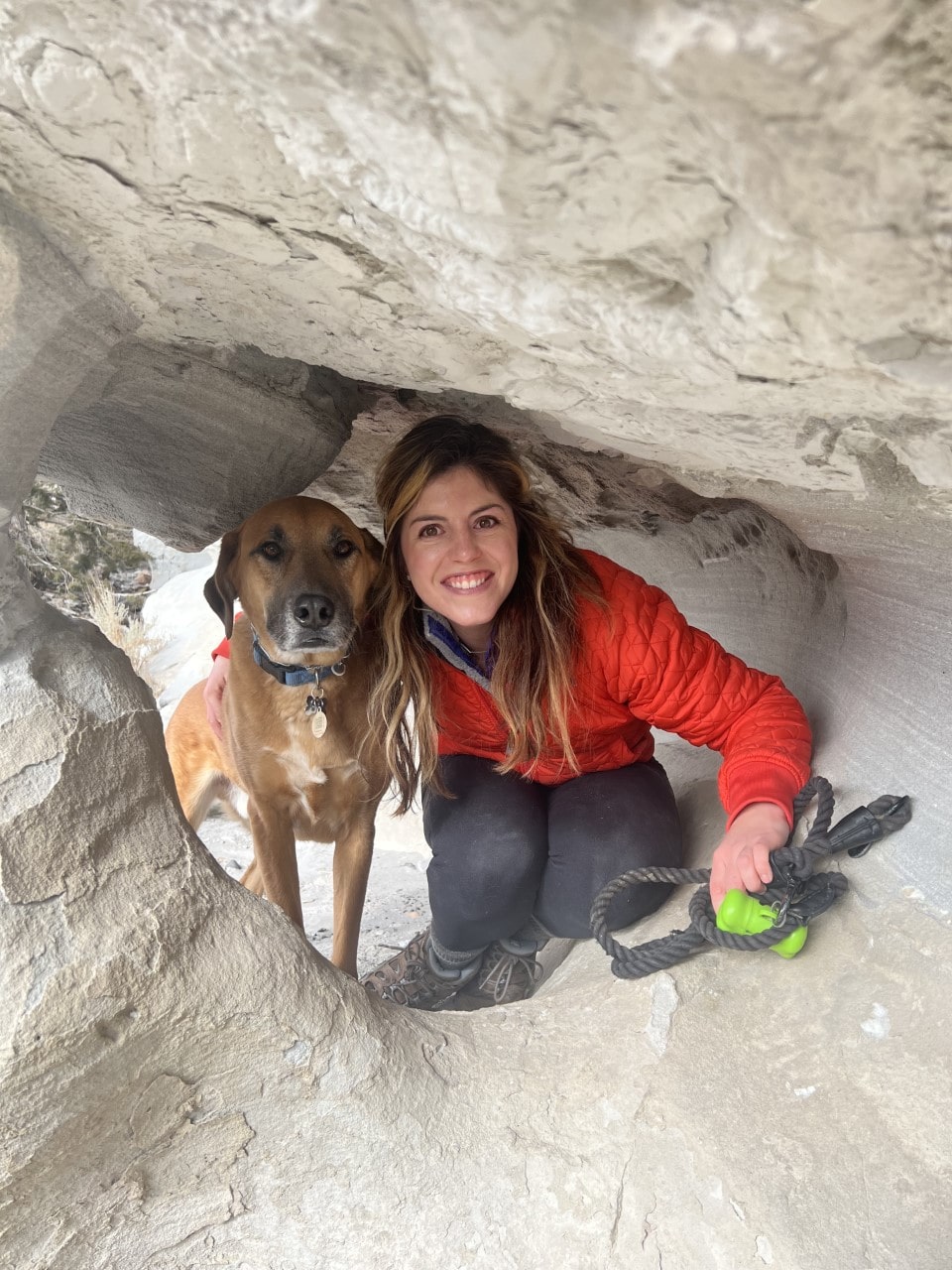 If you’re a registered nurse (RN) wondering which specialty is right for you or if you’re considering changing your nursing specialty, then you’ve come to the right place. Learn more about what a critical care RN does and find out all the reasons why Fusion traveler Gabby loves being an ICU nurse. Maybe it's the right career for you, too!
If you’re a registered nurse (RN) wondering which specialty is right for you or if you’re considering changing your nursing specialty, then you’ve come to the right place. Learn more about what a critical care RN does and find out all the reasons why Fusion traveler Gabby loves being an ICU nurse. Maybe it's the right career for you, too!
Why I Love Being a Critical Care Nurse with Gabby Harrington, RN
What is a critical care nurse?
Chances are, you’ve met a critical care nurse already!
Critical care nurses provide hands-on patient care for those in pre-and post-operative medical settings who are critically ill or injured. Working with a wide range of age groups, critical care nurses assess the risks and benefits of proposed treatments, offer life-saving care in emergency situations, and nurse patients back to health.
You may have seen them in hospitals, intensive care units (ICUs), progressive care units (PCUs), coronary care units, telemetry units, burn units, step-down units, nursing homes, hospices, outpatient clinics, and trauma center emergency departments. According to the American Association of Critical-Care Nurses, approximately 37% of all nurses working in a hospital are critical care nurses.
Q&A with Fusion traveler Gabby Harrington, RN

To learn more about critical care nursing, we sat down with Fusion traveler Gabby. With experience working in the PCU and the ICU, Gabby knows what it takes to be a critical care nurse. Here’s why she loves it.
Megan Bebout: Hi Gabby! Thanks so much for chatting with us today. To start, tell us a little about yourself.
Gabby Harrington: Hi, I’m Gabby! I graduated with a bachelor’s in nursing from the University of Arizona in Tucson. I have been a nurse for almost four years now and have been a traveling nurse for a little under two years. Another thing about me is I have a rescue dog named Apollo. He’s a Shepherd mix breed and travels with me!

MB: OMG. Apollo, so cute! So, before you started traveling, you worked a staff nursing job. What’s it like going from a perm position to a travel job?
GH: My first nursing job was at Vanderbilt University Hospital where I completed their new graduate program. I worked there for two years before I decided to be a travel nurse. I never thought I would want to be a travel nurse because I had moved so much growing up. After living in Nashville for two years, it still didn’t feel like home. So, one of the main reasons I became a travel nurse was to look for a place to call home and to save money to go back to school.

MB: I love that you chose travel nursing as a way to explore new destinations and save money!
GH: Yes! I met Allison Jimenez, a Fusion travel nurse, at Vanderbilt University Hospital. She was on a travel contract in the burn ICU, my home unit. It was one of those friendships where there was an instant connection. She answered a lot of my questions about traveling and made the transition easy. She even introduced me to Fusion and our amazing recruiter, Jessica Casper.
MB: Shoutout to Jessica! Based on your experience so far, why would you recommend travel to other nurses?
GH: Traveling has been so much fun! You get to see so many different places, meet new people, and experience different cultures and food. If you decide that you don’t enjoy one place, it’s okay because the contracts are only for a short 13 weeks. But if you like a place, then extending your contract with a hospital is an option, too. I would recommend traveling with Fusion Medical Staffing because they care about you and look out for your well-being.

MB: You heard it here first, folks. Traveling is the way to go! Switching gears a little bit, let’s talk about critical care nursing. In your words, what's the difference between PCU and ICU, since you've worked in both?
GH: Yes, I’ve worked in both PCU and ICU units. The main difference is the number of patients, equipment used, and resources available to you. For instance, in a PCU, you have anywhere from three-to-four patients and in an ICU, you have one-to-two patients due to the acuity.
In the ICU, you’ll see more invasive tubes and lines that support their care while they are unstable, like ventilators, A-lines, external ventricular drain (EVD), continuous renal replacement therapy (CRRT), balloon pumps, or swan catheters. In the ICU, the doctors are easily reachable. When patients are doing poorly, doctors tend to be on the floor, in a room close by, or they can electronically call into the room.
PCU patients may have chest tubes, small drains, foley catheters, or simple IV lines because the patients should be getting better and hopefully making their transition home. Normally the doctors aren’t on the floor in the PCU, so rapid response teams become your favorite people when the patients aren’t doing well and need a higher level of care.
-min.jpg?width=960&height=1280&name=thumbnail_unnamed%20(1)-min.jpg)
MB: Just between us, which unit do you prefer working in: PCU or ICU?
GH: Although I started in the PCU, I personally prefer working in the ICU. I remember in the PCU when my patients would take a turn for the worse, the ICU nurses and staff would come to help transfer the patients to a higher level of care. I always felt bummed that I was no longer able to help the patients or follow along with their care. I always wanted to be able to help people in their most vulnerable situations. I had to expand my knowledge and skills, and to grow as a nurse, which is why I made the transition to the ICU.
MB: And why do you love being a critical care nurse overall?
GH: I became a nurse because I knew that I wanted to help people in their most vulnerable moments. Working in a PCU and ICU, I’m able to do just that. Having fewer patients gives me more time to get to know them and their families.
One thing that I love about nursing is the weekly schedule. Only working three days has allowed me to explore and do other activities outside of work, which has been great for participating in self-care. I love being an ICU nurse in particular because it’s a great place to expand my skills, knowledge, and critical thinking abilities. Working in a critical care unit makes you learn adaptability while still maintaining attention to the smallest details.
Plus, I enjoy working with an interdisciplinary team. Each member of the group has a different job and new information to bring to the table. Each piece of information is as important as the next and helps to build a picture of the patient’s status.

MB: It sounds like you’re living your dream! What’s a typical day like for you as a critical care nurse?
GH: I work the night shift, so my day normally starts when I walk into the unit. I find my assignment and get a report from the day shift nurse who cared for my patients. After they're done, I do a visual check and assessment to ensure that the patients are stable and in the same condition described in the report. If the patients look stable and there are no acute events, I look through their charts to learn more and organize my night.
The rest of my shift includes admitting patients, hourly rounding, multiple assessments, documentation, administering medications, monitoring vitals, assisting doctors with minor bedside procedures, and helping the patient with personal needs. My shift ends when I give a report to the day shift nurse, and they take over the patient’s care.
MB: Never a dull moment! Okay, to wrap up, why would you recommend working in critical care?
GH: I would recommend working in the PCU or ICU because you have smaller patient ratios. Having fewer patients to take care of allows you more time to get to know them better. Plus, the staff I’ve encountered in these units has been amazing. Everyone collaborates to get the patients back to their baseline. The team effort with other disciplines creates a wealth of knowledge, new ideas, and a positive working environment. If you have other goals within the medical field, such as getting a certified critical nurse (CCRN) certification or going to a certified registered nurse anesthetist (CRNA) school, working in the PCU or ICU allows you to work toward them.

MB: Thank you so much for sharing why you love critical care nursing! We appreciate you, Gabby.
GH: Of course!
Life as a critical care nurse requires dedication, passion, and resilience. But, as Gabby discussed, it’s so worth it. If you’re looking for an exciting career that provides both intellectual stimulation and opportunities for personal growth while also helping others, becoming a critical care nurse may be the perfect fit for you!




